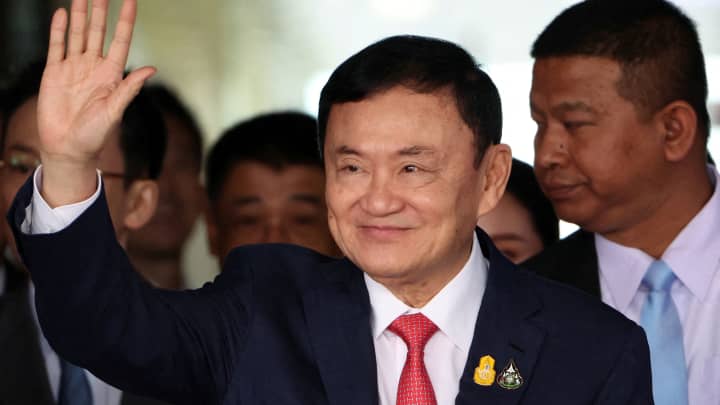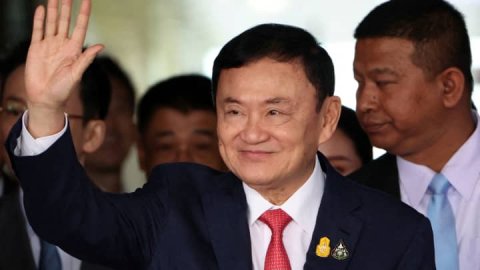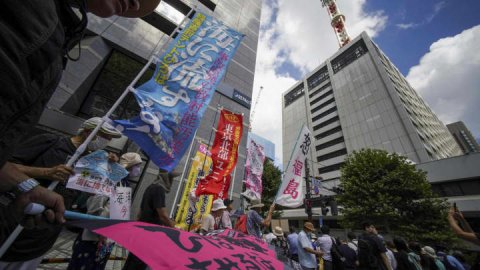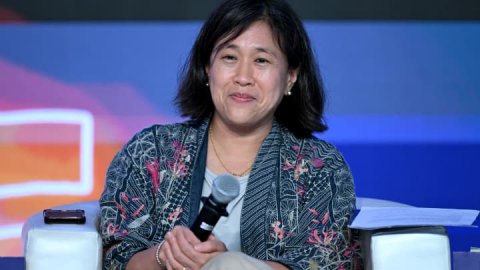
The after years of self-exile could mark the end of a chapter in the country's politics, even as some analysts believe he will still be pulling some political strings — albeit from behind.
The founder of Pheu Thai party and widely seen as its de facto leader, Thaksin returned to Thailand on Tuesday after 15 years in exile, and was sentenced to eight years in prison upon his return.
The same day, property mogul Srettha Thavisin from the Pheu Thai party, was elected prime minister after securing 482 votes — including more than 150 from senators and well over the simple majority of 375 votes that he needed.
"It closes a crucial chapter in Thai politics because Thaksin has been such a dominant force over the past two decades," Thitinan Pongsudhirak, an executive director from Chulalongkorn University's Institute of Security and International Studies, told CNBC in an email.
Thaksin went into to avoid a jail sentence for abuse of power following a military coup that had overthrown his government. Even from a distance, the tycoon continued to influence Thai politics.
"Since he is now 74, he is unlikely to return to power directly. But he will be the key person driving Pheu Thai Party behind the scenes," said Kasem Prunratanamala, head of Thailand research at CGS-CIMB.
Pheu Thai is the latest iteration of his old party Thai Rak Thai after several before were disbanded by the courts.
.
"Business groups have welcomed the conclusive vote, although it has now been 100 days after the 14 May election," Citi said in a note Wednesday.
According to Citi, some of the key proposals that the Pheu Thai (PT) party will support include a one-off 10,000 baht ($286.50) handout for those who are 16 years and above, bumping up the daily minimum wage to 600 baht — from 353 baht — by 2027, as well as removing mandatory military service and making it voluntary instead. A constitution rewrite is also on the cards.
"The timing of policy rollout is something to watch for, and some proposals – especially military and charter reforms – will likely face opposition from conservative parties," Citi analysts said in the note.
"If it has success on economic policies, PT could pressure the position of the conservative establishment, as happened in the past under the Thaksin and Yingluck administrations."
Citi said it is "positive in the short term" on Thailand, but added: "We remain uncertain on the ability of the new government to push through other meaningful economic reforms."
During the May election, the Move Forward Party had secured an of seats in Parliament, but still proved insufficient to push forward its own candidates for the prime minister office.
The party was pushed into a coalition with seven other parties, and its leader Pita Limjaroenrat was twice in his bid to become the next prime minister.
"I think it's time for Thailand to move on. And I don't think there's gonna be any problems for the Pheu Thai party as the leader of the coalition government," said Punchada Sirivunnabood, an associate professor at Mahidol University.
While Thaksin has been sentenced to eight years in jail, analysts who spoke to CNBC don't expect him to serve the full term.
It is "highly unlikely [Thaksin] will be in prison for that long," said Prunratanamala from CGS-CIMB.
"Thaksin would not have come home to be imprisoned, otherwise he would have come home a long time ago," said Chachavalpongpun Pavin, an associate professor at Kyoto University, who predicted the former prime minister will be granted a royal pardon.
Thaksin has since been moved to a police amid health concerns.
In the event that Thaksin is released from prison before eight years, some foresee a more invested involvement in politics, although he could take more of a backseat figure.
Analysts expect Thaksin to be one pulling the strings at Pheu Thai.
"I think Thaksin will play a significant role in Thai politics and continue to be important — a powerful player in politics once again, but he's not going to be in the front line anymore," said Punchada, underscoring how Thaksin is going to assume a more backline role in support of Pheu Thai party.
Thaksin can continue to work from behind the scenes like he has done so for a long time, Kyoto University's Pavin said. "No matter what, we will continue to see the political role of Thaksin from this point onwards, but this time this role will be legitimate."
Thaksin will not be on the sidelines even if he doesn't return to office, said Chulalongkorn University's Thitinan.
"Thaksin is not passive in nature. He's a dealmaker and newsmaker with an ego and so we can expect him to be active," he said.
"But it will likely be more like being influential and calling the shots from the back than the front."
— CNBC's Clement Tan contributed to this report.



